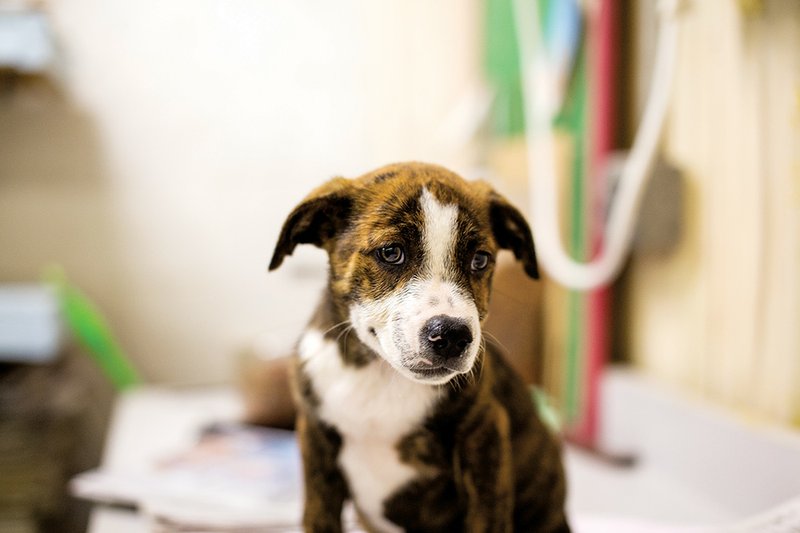Puppies and kittens make cute Christmas presents, but they’re not like a shirt that can be easily returned if it doesn’t fit, said Shona Osborne, director of the Conway Animal Welfare Unit.
“Traditionally, we see our owner surrenders go up in February or March,” Osborne said. “A lot of times, it’s those Christmas puppies and kittens. They’re getting to be older and getting to be a little more responsibility.”
She said it’s a kind of “buyer’s remorse.” People realize, “This thing doesn’t sleep all the time now, and I’ve got to spend time with it,” she said.
“It’s kind of like little human babies — they don’t stay sweet little babies their entire lives where they sleep 18 hours out of 24 hours,” she said.
“Those given away on street corners and bought by breeders end up boomeranging in the shelter,” Osborne said.
“It happens. There’s not a whole lot you can do about it,” she said.
Kittens, especially, are in high demand during the holidays, she said.
“Typically, our cat population drops during the winter months, particularly kittens. As everybody knows, kittens are almost impossible to find this time of year. They’re out there right now breeding; they’ll start trickling in about March,” she said.
She said some of it may be that kittens stay hidden in the cold weather, too, and people don’t see them running around.
The Conway shelter’s adoption application asks if the pet is a gift. When the person answers “yes,” it’s dismaying to the shelter staff, Osborne said.
“It’s not like a shirt, ‘Oh, I don’t like this shirt — it’s the wrong size, or I don’t like this color.’ This is a living thing,” she said.
“It’s hard when [the animals] come into this shelter environment. You pull them out of a shelter environment, and then you put them back in a shelter environment,” she said.
“You’ve got to be willing to make a commitment to this pet for the next 15 to 20 years,” Osborne said.
“If they make it to vet visits and get preventive care, they can make it a long time.”
Mike Vernon, director of the Russellville Animal Shelter, agreed that pet ownership is a major commitment.
“You’ve got to make sure you’re ready for that commitment,” Vernon said. “You’re going to have to take care of them properly. You’re going to have to spend some money on their yearly checkups and vaccinations and spend time playing with them.
“You don’t want somebody to get a dog and chain it in the backyard and never see it.
“That’s not the majority of people; the majority of people are good pet owners.”
Vernon said the Russellville shelter gets “a few” animals back in February and March.
“It could be it’s just too much for them,” he said. “A puppy for an elderly person — it’s too much for them with all the chewing,” etc., he said.
“Of course, with kids, all of us have been through that. When they get a puppy, they promise to feed and water it, but the parent usually ends up with that chore,” he said.
Empty nesters might feel tied down with a pet, Vernon said, because it will need to be taken care of when they leave on trips.
The shelter directors said they don’t want to discourage adoption — that’s their goal.
“If the situation’s right and someone’s ready for one, that’s great,” Vernon said.
“Anytime you have an adoption,” Osborne said, ” it’s a good thing — period.”
Senior writer Tammy Keith can be reached at (501) 327-0370 or tkeith@arkansasonline.com.
